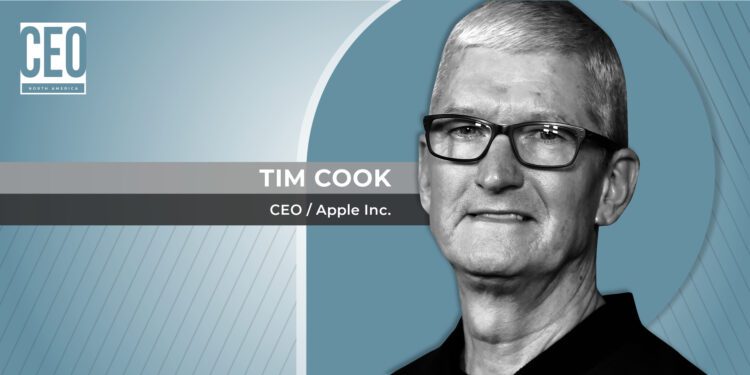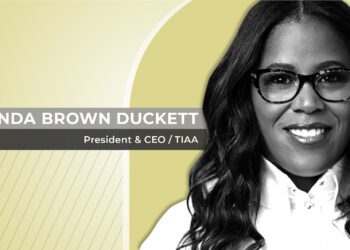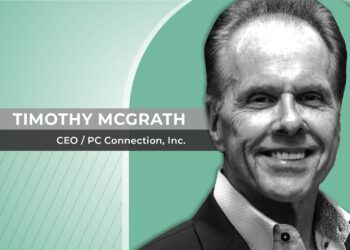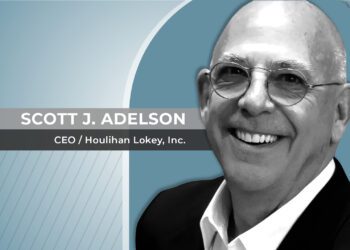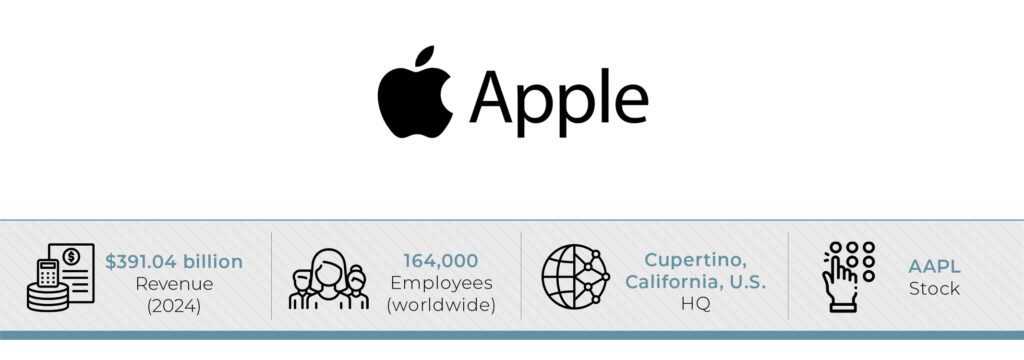

Tim Cook
CEO / Apple Inc.
Apple CEO Tim Cook is working to maintain his company’s position at the forefront of the AI boom while navigating the ongoing trade war, which has challenged the tech giant in 2025. Despite concerns, Cook, who is no stranger to adversity, appears confident in guiding the company through these difficult times and staying on track for Apple’s projected earnings growth this year.
During his time at Apple, Cook has achieved significant successes, rising from what seemed like rock bottom in the late 90s to being part of the team that revolutionized the entire cell phone industry with the launch of the iPhone.
Before joining Apple, Cook spent 12 years at IBM and was working as VP of Corporate Materials for Compaq in 1997 when he was invited to meet with Steve Jobs.
“At the time, Apple was doing very poorly, on the verge of bankruptcy… Michael Dell had said something like, if he were the CEO of Apple, he would shut it down and give the remaining money to the shareholders.”
In an address to Auburn University, Cook reflected on that moment, “I listened to my intuition… no more than five minutes into my initial interview with Steve, I wanted to throw caution and logic to the wind and join Apple. My intuition already knew that joining Apple was a once-in-a-lifetime opportunity to work for the creative genius and to be on the executive team that could resurrect a great American company.”
Following his meeting with Jobs, Cook jumped straight into Apple’s executive management team as SVP of worldwide operations.
Even with huge expectations to live up to as CEO of Job’s company, by 2020, Cook had doubled the company’s revenue and profit, and its market value soared from $348 billion to $1.9 trillion in just over a decade.
“We believe that business, at its best, serves the public good, empowers people around the world, and binds us together as never before.”
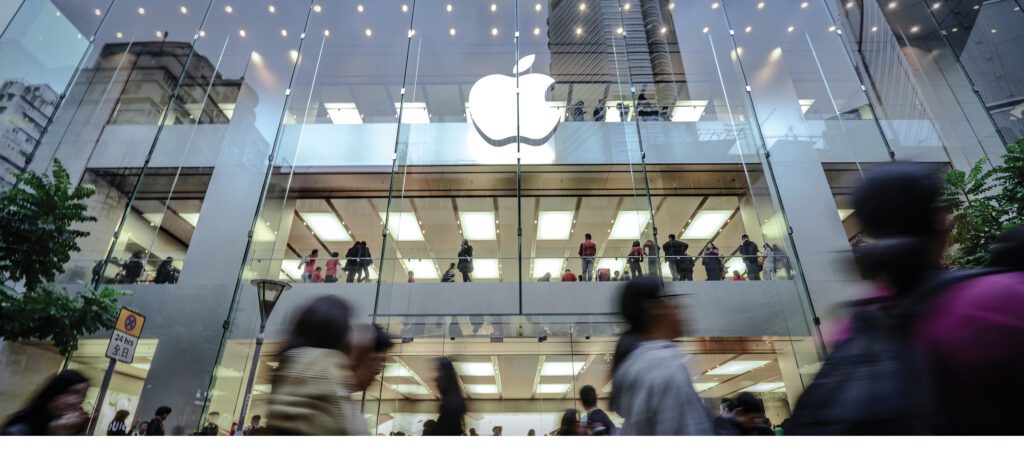

Battling Doubts
Today, Apple stands at a crossroads as its shares have fallen by 17.5% so far this year, and many experts are urging the company to strengthen its AI efforts or risk being outpaced by competitors.
During the company’s Worldwide Developers Conference in June, Apple announced a partnership with ChatGPT, the revamp of its software design called Liquid Glass, new phone and camera apps, as well as new features on Apple Watch and Vision Pro. However, it left industry experts underwhelmed and concerned about the apparent lack of progress it has recently achieved with artificial intelligence.
Ben Wood, Chief Analyst at CCS Insight, noted, “Apple was keen to stress that its strategy in AI is the correct one for the company, but the spectacular growth of OpenAI’s ChatGPT and Google’s relentless focus on Gemini, particularly on Android smartphones, is beginning to contrast sharply with Apple’s more cautious and incremental approach.”
Some experts believe the “deafening silence” Apple has shown regarding AI is due to the company’s current involvement in several ongoing litigations, including antitrust lawsuits, consumer actions, and intellectual property disputes. It is believed that Apple is choosing to take an incremental approach to AI development while these cases are still being considered.
Despite industry doubts, the company, which has long held a strong position at the top of the smartphone industry, is unlikely to lose its standing anytime soon. Today, the company, which has $30 billion in cash reserves, is well-positioned to invest in new products and infrastructure, including expanding its AI capabilities.
“There’s this thing in technology, almost a disease, where the definition of success is making the most. How many clicks did you get, how many active users do you have, how many units did you sell? Everybody in technology seems to want big numbers.”
Tariff Troubles
In February, after discussions with President Trump, Cook stated, “We are bullish on the future of American innovation, and we’re proud to build on our long-standing US investments with this $500 billion commitment to our country’s future.”
However, since Cook’s announcement, trade tensions have risen as Apple faces some of the harshest tariffs among all of Big Tech. President Trump has threatened the tech giant with a tariff of 25% or more if they manufacture smartphones outside the U.S., which, according to experts, could increase the price of an iPhone to as much as $3,500.
In May, during Apple’s quarterly earnings call, Cook said, “Assuming there are no changes to the current global tariff rates, policies, or applications for the remainder of the quarter, and no new tariffs are introduced, we estimate this will add $900 million to our costs.”
Despite increased pressure to move all productions domestically, Cook has confirmed “The majority of iPhones sold in the U.S. will list India as their country of origin.”
“We have a complex supply chain. There’s always risk in the supply chain… What we learned some time ago was that having everything in one location had too much risk with it.”


U.S. Expansion
Despite tensions between Cook and Trump, the CEO has remained loyal to his dedication to expand Apple across all 50 states to produce more products in U.S. facilities. That includes a new server production plant in Houston, which will support Apple Intelligence, the company’s line of artificial intelligence products.
Apple says its 250,000-square-foot server manufacturing plant, set to open in 2026, will bring in thousands of jobs and will be a major game-changer for the company’s AI efforts.
Apple will also boost data center capacity in North Carolina, Iowa, Oregon, Arizona, and Nevada. Additionally, the company plans to invest in corporate facilities and produce Apple TV+ shows across 20 states.
TSMC, which manufactures chips for Apple, recently opened a chipmaking plant in Arizona, which should also help reduce any import taxes Apple faces on foreign-made chips.
In June 2025, Apple further strengthened its long-term optimism by officially becoming its own landlord for two of its Silicon Valley offices. Apple paid $167 million for 270,000 square feet of office space, according to filings with Santa Clara County.
Raising Revenue
As of 2025, Apple ranks as the third most valuable company in the world. In May, it reported quarterly revenue of $95.4 billion, up 5% year over year, and quarterly diluted earnings per share of $1.65, an 8% increase compared to last year. The company also celebrated reaching a new all-time high in its Services revenue.
Currently, Apple’s earnings forecast suggests the company expects a 6.46% increase in revenue this year. However, its future success depends on trade negotiations between Indian officials and the Trump Administration to reach an agreement by July 9.
So far, India, where most Apple products are manufactured, has not reached a trade deal with the U.S. and is facing the possibility of a 26% reciprocal tariff. Even if negotiations result in an exemption from the 26% tariff, Apple products made in India will likely still face the 10% base tariff imposed by Trump on all countries, which could hurt Apple’s revenue growth.
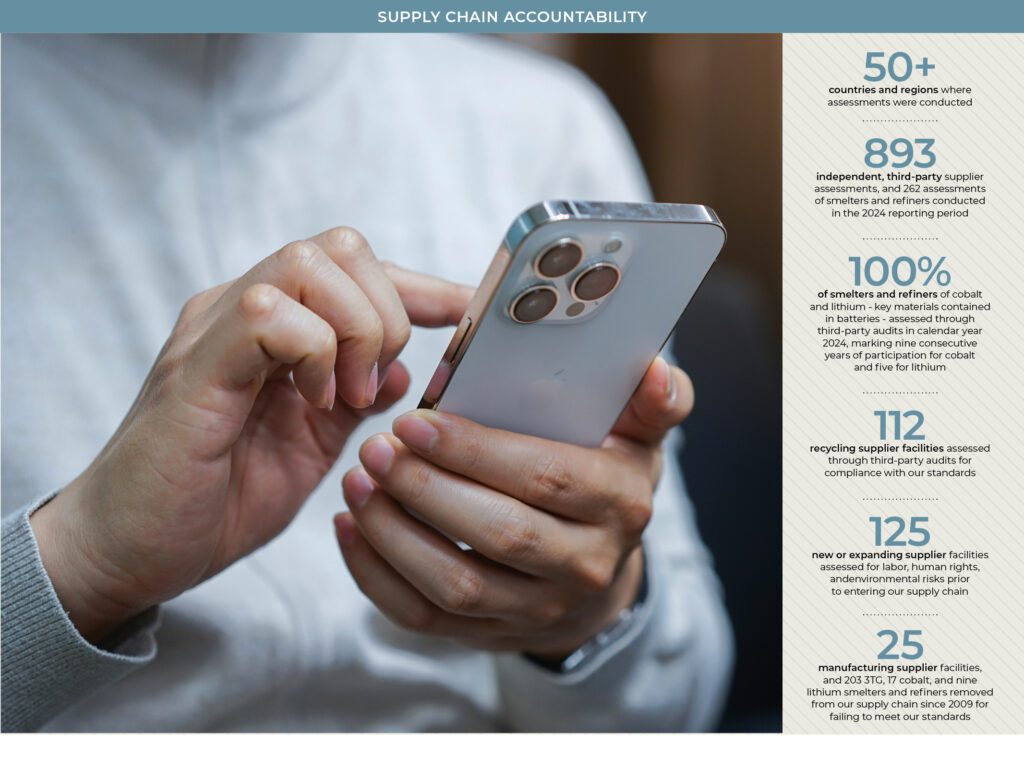

Apple and the Arts
In 2025, Apple’s revenue focus has shifted to also include the arts, with its film “F1,” where Cook teamed up with racing legend Lewis Hamilton for a promotional feature in Variety.
Opening up about the film, Cook said, “We stand at the intersection of technology and the liberal arts… We wanted Apple TV+ to be a place where great storytellers would tell their best stories.”
Cook explained that the streaming service was a passion project, years in the making. “We studied it for years before we decided to do [Apple TV+]. I know there’s a lot of different views out there about why we’re into it. We’re into it to tell great stories, and we want it to be a great business as well. That’s why we’re into it, just plain and simple.”
“We do the right thing, even when it’s not easy.”


Eco-Invested
As Apple enters the second half of 2025, the company not only aims to drive innovation in communication technology but also focuses on strengthening its position as a leader in advancing environmental technology in the tech industry. The company says, “We’re committed to protecting the planet.”
For the next five years, Cook will continue to oversee Apple’s operations through the framework of Apple 2030, a plan focused on recycled and renewable materials, clean electricity, and lower-carbon shipping.
“We are a secretive company. But we’ve rewired ourselves on the values side. Think about the environment—we talk about what we’re going to look like in 2030. We talk about our road maps to get there. We want those items to be stolen.”
Moving Ahead
Even after nearly 30 years with the company, Cook’s leadership is still in tune with current trends. His hands-on approach to customer interaction keeps the long-term CEO’s focus firmly on the company’s future potential.
For the rest of 2025, Cook is tasked with leading the company through scrutiny, competition, and trade uncertainties, while demonstrating to the world that Apple, which turns 50 next year, is a company that can withstand global pressure and is built for lasting success.



